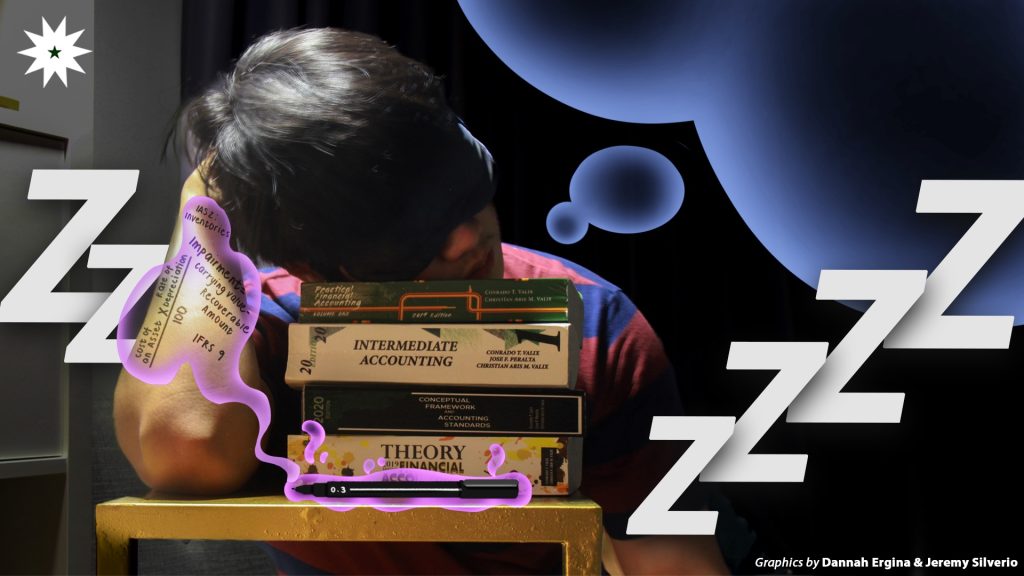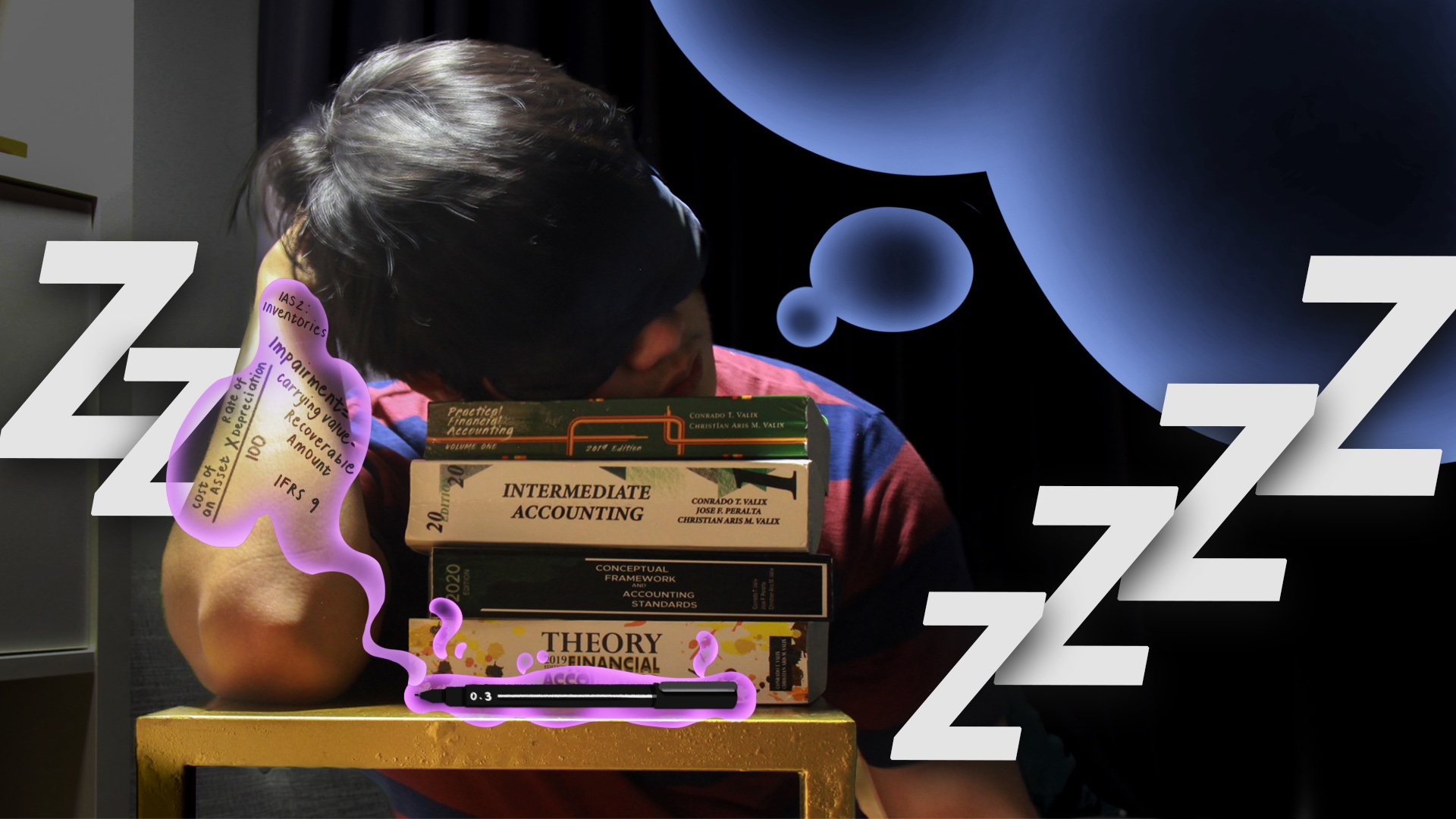The rapid acceleration of modern science has allowed for great strides in our understanding of the human brain. Research into memory, cognition, and behavior has generated new insights about learning, and the efficient, effective conduct of this process is of great interest to students and educators alike. While many new learning methods have emerged from this strain of research, these three methods below, resting on tried-and-true scientific concepts, have proven to be the fastest ways students can learn anything—with the bonus of being effortless and stress-free.

No Thoughts, Head Empty
Multiple studies from the Productive Sleep Center in Ohio, USA have shown that students can learn the contents of a book simply by resting their heads on it. Dr. Tam Adlang, the head of the neurology department at Taft Avenue Medical Center, explains that the method works similarly to osmosis or the movement of solvents through a semipermeable membrane from a region of low solute concentration to a high solute concentration. “The solvent in this case is information, so in other words, the information naturally flows from the info-dense book to the empty brain,” Adlang says. She adds that the amount of information learned is directly proportional to the time spent lying on the book.
The method is neither consistent nor fool-proof, however. It is critical that the brain is empty and free of any thought for information to flow as intended. If the brain is occupied, some information may still enter but at a very slow rate. It is also important that the information is contained in a book and not on any other medium such as loose sheets of paper or electronic devices. “Tablets, phones, and laptops contain too much extraneous information. Your brain will absorb things beyond what you mean to study,” Adlang says. “As for print-outs, you run the risk of tearing or scattering pages, which makes the information too sparse to flow steadily.”
Current research is divided on whether this phenomenon still occurs when students are asleep. Adlang’s own studies have shown that it does happen, but she acknowledges that there is a lot of variation: “If your brain enters a dreaming state, subconscious information is being processed. Thus, any new information coming from the book may have difficulty flowing into the brain. But not everyone has dreams, and even those who do dream don’t have them every day.” Still, Adlang stresses that the method should be effective for most people as long as there is a conscious effort to stop thinking while lying one’s self on top of the book.
Write to Remember
One of the challenges students face when studying for an exam is retaining information from previous lectures. In light of this, Saber Castle Co., a global stationery supplier, released a new version of its Ultra Fine Point 0.3 mm ink pen in early February this year. The company claims that by using the pen to write notes on the skin, the ink will travel from the skin to the brain—a more efficient way of processing information.
Before its release, Saber Castle Co. tested the product’s efficacy on students worldwide for two years by monitoring the ink’s longevity on the skin and its information-absorbing capabilities. Results show that the pigment will remain visible on the skin for a week as it penetrates deeper into the skin and information can be retained for one month with a good night’s sleep.
Due to high student demand, the ink pen sold out in the Philippines a month after its launch. Mae Beau Caspa, a third-year Medical Biology student, expressed relief after buying the product, “With this pen, studying has never been easier, and I get two more hours of sleep!”
However, medical experts have raised concerns about using the ink pen. A member of the Society of Overworked Health Workers, Dr. Dina Magiba, is skeptical about the product, “Information cannot magically transfer into the brain like that. There is also a chance that the ink will travel into the body’s internal organs and damage them.”
Sleep is Not for the Weak
However, for the not-so-brave students who do not want to temporarily tattoo their bodies, there is actually one easy alternative to memory retention: sleep. A study done by researchers from Drowseh University has shown that strictly only sleeping is the best way to prepare for examinations. A student can forgo studying altogether if they manage to sleep for a week straight immediately after their lecture—whatever content they learned in class will stick. With this method, there will also be no need to take notes during lectures. Dr. Dosent Napwell, one of the neuroscientists who led the research, further explains that the brain is always subconsciously absorbing information. “We discovered that sleep is the key for the information to get fully processed and ingrained in the brain,” he notes.
The only downfall with this method is that it may cause students to miss some of their other classes. One way a student can work around that is to schedule all their classes in one day so that they can sleep for the rest of the week.
However, most people are incapable of sleeping for 24 hours—much less a whole week. Thus, the Swedish-based company SleepStudy Inc. has engineered a sleeping pill that will make one sleep for days at a time. The company has created varieties of pills that allow for different sleeping lengths ranging from one day to one week.
“We created this pill to help college students get the rest they need while still getting perfect GPAs (grade point averages),” shares SleepStudy Inc.’s founder, Dr. Ericka Benson, “About 80 percent of our participants in the one-week trial reported an increase in sleep satisfaction, and 70 percent of those that continued to use the pill for an entire semester reported that they got a 4.0 GPA. The other 30 percent had GPAs ranging from 2.5 to 3.5.”
Aspiring learners must keep in mind that these study hacks may not be effective for everyone. If all else fails, students can attempt more niche techniques such as repeated review, rote memorization, and the use of mnemonic devices. “If one study method doesn’t work for you, just try another one,” Adlang concludes. “There is always an easier way to learn.”



